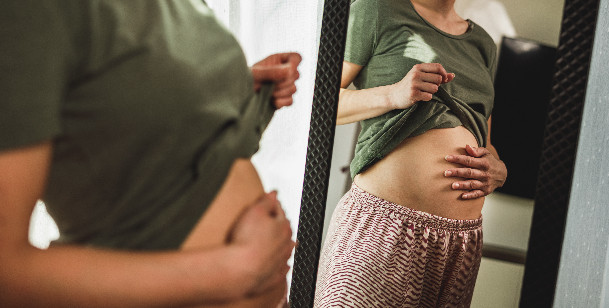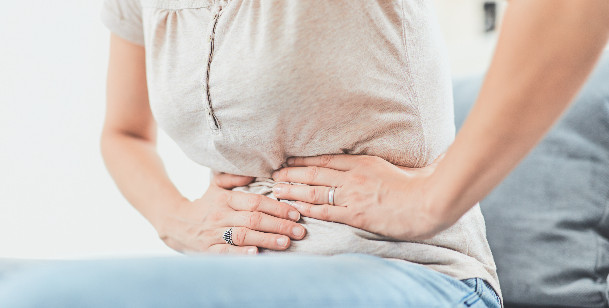Yeast infections can cause a wide range of uncomfortable symptoms, including bloating and pain in your abdomen. It seems strange to get symptoms in an area of your body where the infection isn’t located, but it’s not that improbable. Our bodies are more connected than we realize, and in this article, we will explain how the different parts of your body can be linked together. It is possible to develop a yeast infection in your gut. So, can a yeast infection cause abdominal pain and bloating? The answer depends on the circumstances and location of the infection.
What is a Yeast Infection?
Yeast infections come from Candida overgrowth, a fungus that exists on our skin and around our body and normally doesn’t cause issues. They can appear in your gut, digestive system, mouth, skin, and the vulva and vagina. Most women will experience a vaginal yeast infection at some point, but no worries, they’re easy to treat.
Having yeast in our bodies is an important part of our body microbiome as some amounts of Candida promote good gut health and help with the absorption of nutrients. It’s a good bacteria in moderation, but as yeast infections appear, it is possible to have too much of a good thing.

What Causes a Yeast Infection?
Yeast overgrowth is the cause of yeast infections, and they can develop as a result of a few different things. They can occur if your skin gets damaged or if you have a weakened immune system. Yeast also thrives in humid conditions, so they are more common during summertime. Taking antibiotics can also cause yeast to flourish and overgrow because antibiotics kill the good bacteria in your body that keeps the yeast levels in check.
While a yeast infection isn’t classified as an STD, people who have sex more frequently might be more likely to develop an infection. When unfamiliar bacteria enter the body, it can be enough to trigger a yeast infection.
Symptoms of a Yeast Infection
Depending on the location of the infection, the signs could be slightly different. However, a visit to the doctor can always confirm with a quick physical exam if you’re unsure. If you think you have a yeast infection, look for these common symptoms:
- Painful rash
- Yellow or white vaginal discharge
- Redness
- Itchiness
- Burning sensation
- Swelling
- White patches on the tongue or inside of the cheeks
- Patches that ooze clear fluid

Yeast in the Gut
If you’ve been diagnosed with Crohn’s disease, ulcerative colitis, or a similar condition, you could experience inflammation in your gut. As a result of the increased levels of inflammation, it is possible to develop candida overgrowth in your gut. The symptoms will be different from typical yeast infections. Examples of these symptoms include:
- Excessive gas
- Abdominal pain and cramps
- Diarrhea
- Fatigue
- Fever
- Bloating
- Losing weight unintentionally
- Blood in stool
Abdominal Pain and Bloating
These symptoms aren’t common unless there’s an overgrowth of Candida (or yeast) in your gut. So to answer the question, “Can a yeast infection cause abdominal pain and bloating,” the answer is a “yes” when it’s an internal yeast infection. The fungus growing in your digestive system might lead to a backup of gas and put a lot of pressure on your body, leading to further issues. This includes leaky gut syndrome or constipation, which can add to your abdominal pain.
With bloating, the more you consume food and fluids throughout the day, the more the yeast in your gut is fermenting, which produces more gas than normal. When you combine the fungus overgrowth preventing gas from being expelled with producing more gas than usual, it can lead to an uncomfortable amount of abdominal bloating.

Treating a Yeast Infection with Village
If you suspect you have a yeast infection, we advise you to visit a medical professional as soon as possible. Just like with anything else—the sooner it is treated, the better. Getting treatment from a physician can stop the infection from spreading and ease your symptoms. You might be prescribed an antifungal medication or a single-dose medication to help control the overgrowth of yeast in your body.
At Village Emergency Centers, we are here to help anytime, day or night. A yeast infection, whether it’s in your gut or another part of your body, can be uncomfortable, and our board-certified physicians can get you treated in minutes instead of hours to help ease your symptoms. Find your nearest Village location on our website.
